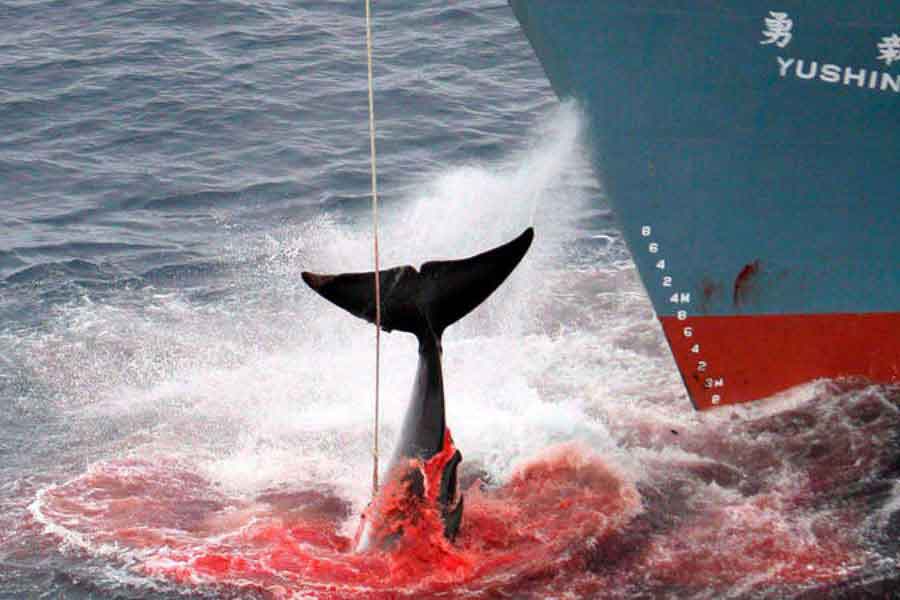
Defying the international moratorium on whale hunting, the Japanese whaling fleet will enter the port of Shimonoseki this week with 2,000 tons of whale meat obtained from the capture of 440 minke whales in the waters of Antarctica, 10,000 kilometers away from Tokyo.
The same port, Shimonoseki, will host the 53rd Meeting of the International Whaling Commission next month, leading many ecologists around the world to believe they are «walking into the wolf’s mouth.» The Japanese government, which has bypassed the moratorium under the pretext of «scientific research,» seems determined to significantly increase the quota of captured whales for the current year.
In any case, Japan is on the verge of getting its way, as it has the support of votes from China, Korea, Norway, and Russia. Furthermore, in recent times, they have been «buying» votes from small countries whose economies depend on international investments. This has secured Japan the votes of Antigua, Barbuda, Dominica, Guinea, Grenada, Saint Vincent and the Grenadines, Saint Lucia, Saint Kitts and Nevis, the Solomon Islands, Panama, and Morocco. Atherton Martin, former Minister of Environment of Dominica, accused the Japanese government of blackmail, stating that «the Japanese announced that if Dominica did not support them, they would have to reconsider projects funded by Japan in this country.»
As part of this policy, all directors of the Japan Fisheries Agency have made statements to the media in an attempt to win over public opinion worldwide. According to Takanori Ohashi, a director of the agency, «Japan hunts gray whales as part of plans for scientific research on the life cycles of these animals, ensuring at the same time that this will improve fishing since whales eat all the fish.» It is remarkable that the best way to study a «life cycle» is by killing the animal. Moreover, Japan’s scientific research on whales does not seem to be very accurate since they still don’t know that gray whales do not feed on fish.
Maseyuku Komatsu, director of the same Fisheries Agency, went even further in an interview with the BBC, stating that «whales are the cockroaches of the sea because they are too numerous and very fast.» Without a doubt, Komatsu has never seen a whale move in the sea, as these animals are extremely slow. As for their number, he undoubtedly lacks or conceals information, as only 10% of the whales that existed in 1900 remain in the world, largely due to Japanese extermination.
If Japan manages to secure four more votes, it will have an absolute majority in the International Whaling Commission, allowing it to hunt whales as it pleases until the complete extinction of the species, mocking international consensus and insulting the world with its model of «scientific research.» The Argentine Ministry of Foreign Affairs strongly opposes the increased whale hunting. And you? Perhaps it is time to take action on this matter. The email address of the Japanese Embassy in Argentina is listed at the bottom of this message.
It is time to make it clear to the Japanese government that the world’s whales do not belong to Japan and that we are not naive enough to believe in their arguments. Whales need you today because if humanity cannot save whales now, it will mean that it cannot save anything.
Minister of the Japanese Embassy in Argentina, Mr. Kazuo Watanabe.
«You cannot defend what you do not love, and you cannot love what you do not know.»

